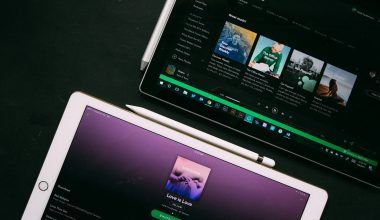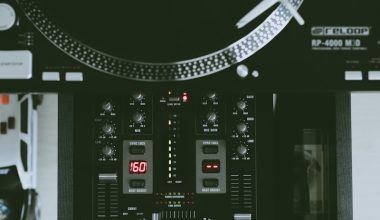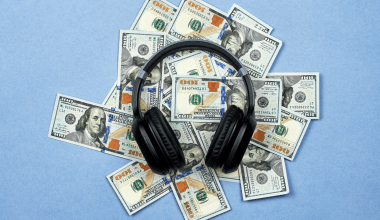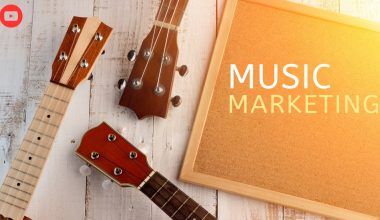Digital marketing for independent musicians is essential in today’s music industry. With the rise of digital platforms and social media, musicians have more opportunities than ever to reach new audiences and engage with fans. This comprehensive guide will explore the various aspects of digital marketing for independent musicians, providing practical tips and strategies to help you succeed.
Why Digital Marketing is Crucial for Independent Musicians
As an independent musician, you may not have the backing of a major record label to promote your music. This is where digital marketing for independent musicians comes in. It allows you to control your brand, reach a global audience, and build a loyal fan base without needing significant financial resources. Here are some reasons why digital marketing for independent musicians is crucial:
- Global Reach: Digital marketing enables you to reach audiences worldwide, breaking geographical barriers.
- Cost-Effective: Many digital marketing strategies are affordable and provide a high return on investment.
- Direct Engagement: Social media and other digital platforms allow you to interact directly with your fans, creating a personal connection.
- Data-Driven Decisions: Digital marketing tools provide insights and analytics that help you understand your audience better and refine your strategies.
Key Components of Digital Marketing for Independent Musicians
Social media is a powerful tool for digital marketing for independent musicians. Platforms like Facebook, Instagram, Twitter, and TikTok allow you to share your music, engage with fans, and grow your audience. Here are some tips for effective social media marketing:
- Consistency: Post regularly to keep your audience engaged. Develop a content calendar to plan your posts.
- Engagement: Respond to comments, messages, and mentions to build a strong relationship with your fans.
- Content Variety: Share a mix of content, including behind-the-scenes videos, live performances, music releases, and personal updates.
- Collaborations: Collaborate with other musicians and influencers to reach new audiences.
2. Email Marketing
Email marketing remains a powerful tool for digital marketing for independent musicians. It allows you to communicate directly with your fans and keep them informed about your latest news, releases, and events. Here are some tips for successful email marketing:
- Build an Email List: Collect email addresses at shows, through your website, and on social media.
- Regular Updates: Send regular newsletters with updates about your music, tour dates, and exclusive content.
- Personalization: Personalize your emails to make them more engaging and relevant to your audience.
- Call to Action: Include clear calls to action in your emails, such as links to your latest release or tickets for an upcoming show.
3. Content Marketing
Content marketing involves creating and sharing valuable content to attract and engage your audience. For independent musicians, this can include blog posts, videos, podcasts, and more. Here are some content marketing strategies:
- Blogging: Write blog posts about your music journey, behind-the-scenes stories, and industry insights.
- Video Content: Create music videos, vlogs, and live performance videos to engage your audience visually.
- Podcasts: Start a podcast where you discuss your music, interview other artists, and share tips and advice.
- Guest Posting: Write guest posts for music blogs and websites to reach new audiences and build your credibility.
4. Search Engine Optimization (SEO)
SEO is crucial for ensuring your online content is easily discoverable by search engines. By optimizing your website and content, you can attract more organic traffic and increase your visibility. Here are some SEO tips for independent musicians:
- Keyword Research: Identify relevant keywords, such as “digital marketing for independent musicians,” and incorporate them into your content.
- On-Page SEO: Optimize your website’s meta titles, descriptions, headers, and images.
- Quality Content: Create high-quality, engaging content that provides value to your audience.
- Backlinks: Build backlinks from reputable websites to improve your site’s authority and search engine ranking.
Advanced Digital Marketing Strategies for Independent Musicians
1. Paid Advertising
Paid advertising can help you reach a larger audience and promote your music more effectively. Here are some types of paid advertising to consider:
- Social Media Ads: Run targeted ads on platforms like Facebook, Instagram, and TikTok to reach specific demographics.
- Google Ads: Use Google Ads to promote your music and drive traffic to your website.
- YouTube Ads: Create video ads to promote your music videos and reach viewers on YouTube.
Paid advertising can be particularly effective when combined with other digital marketing for independent musicians strategies. For example, running a social media ad campaign to promote a new single release can help you reach a wider audience quickly and generate more streams.
2. Influencer Marketing
Influencer marketing involves partnering with influencers who can promote your music to their followers. This can help you reach new audiences and build credibility. Here are some tips for influencer marketing:
- Identify Relevant Influencers: Look for influencers who align with your brand and have a following that matches your target audience.
- Collaborate: Work with influencers to create authentic content that promotes your music.
- Track Performance: Monitor the performance of your influencer campaigns and adjust your strategy as needed.
3. Streaming Platforms
Streaming platforms like Spotify, Apple Music, and SoundCloud are essential for digital marketing for independent musicians. Here are some tips for promoting your music on streaming platforms:
- Create Playlists: Curate playlists that include your music and share them with your audience.
- Optimize Your Profile: Ensure your profile is complete and includes a bio, photos, and links to your social media and website.
- Pitch to Playlists: Submit your music to playlist curators to increase your chances of being featured.
- Engage with Fans: Use the platform’s tools to interact with your fans and promote your music.
4. Video Marketing
Video marketing is a powerful way to engage your audience and promote your music. Here are some video marketing strategies for independent musicians:
- Music Videos: Create high-quality music videos for your singles and share them on YouTube and social media.
- Lyric Videos: Produce lyric videos to accompany your songs, making it easier for fans to sing along.
- Live Streams: Host live streams on platforms like Instagram and Facebook to perform live, answer questions, and connect with your fans in real-time.
- Behind-the-Scenes Videos: Share behind-the-scenes footage of your recording sessions, tours, and daily life to give fans a glimpse into your world.
Utilizing Analytics in Digital Marketing for Independent Musicians
Analytics play a crucial role in digital marketing for independent musicians. By tracking and analyzing data, you can make informed decisions and improve your marketing strategies. Here are some key analytics tools and metrics to consider:
1. Google Analytics
Google Analytics is a powerful tool for tracking website traffic and user behavior. Here are some key metrics to monitor:
- Traffic Sources: Understand where your visitors are coming from (e.g., social media, search engines, direct traffic).
- Bounce Rate: Monitor the percentage of visitors who leave your site after viewing only one page.
- User Engagement: Track metrics like average session duration and pages per session to gauge user engagement.
Most social media platforms provide built-in analytics tools that offer valuable insights into your audience and content performance. Here are some metrics to track:
- Engagement Rate: Measure the level of interaction (likes, comments, shares) your posts receive.
- Follower Growth: Monitor the growth of your followers over time.
- Post Performance: Analyze which types of posts (videos, images, text) perform best.
3. Email Marketing Analytics
Email marketing platforms like Mailchimp and Constant Contact offer analytics tools to track the performance of your email campaigns. Here are some key metrics to monitor:
- Open Rate: The percentage of recipients who open your email.
- Click-Through Rate (CTR): The percentage of recipients who click on links within your email.
- Conversion Rate: The percentage of recipients who take a desired action, such as purchasing a ticket or streaming a song.
4. Streaming Platform Analytics
Streaming platforms like Spotify for Artists and Apple Music for Artists provide detailed analytics about your streams and audience. Here are some key metrics to track:
- Stream Count: The total number of streams your songs receive.
- Listener Demographics: Information about your listeners’ age, gender, and location.
- Playlist Adds: The number of times your songs are added to playlists.
Best Practices for Digital Marketing for Independent Musicians
To maximize the effectiveness of your digital marketing for independent musicians efforts, follow these best practices:
1. Develop a Strong Brand
Your brand is your identity as an artist. It should reflect your personality, style, and the message you want to convey through your music. Here are some tips for developing a strong brand:
- Consistent Visuals: Use consistent colors, fonts, and imagery across all your marketing materials.
- Authentic Voice: Be authentic in your communications and interactions with fans.
- Clear Message: Clearly define your brand message and ensure it aligns with your music and overall image.
2. Engage with Your Audience
Engagement is key to building a loyal fan base. Here are some ways to engage with your audience:
- Social Media Interaction: Respond to comments, messages, and mentions on social media.
- Fan Contests: Host contests and giveaways to encourage fan participation.
- Live Q&A Sessions: Host live Q&A sessions on platforms like Instagram Live to interact with your fans in real-time.
3. Leverage User-Generated Content
User-generated content (UGC) is content created by your fans that features your music. Here are some ways to leverage User-generated content:
- Reposts and Shares: Share fan-created content on your social media profiles to show appreciation and encourage more fans to create content.
- Fan Art: Feature fan art on your website and social media channels.
- Hashtag Campaigns: Create a unique hashtag and encourage fans to use it when posting about your music. This helps you discover and share UGC easily.
4. Collaborate with Other Artists
Collaborations can help you reach new audiences and create fresh, engaging content. Here are some ways to collaborate with other artists:
- Joint Performances: Perform live or record a song together.
- Guest Appearances: Feature on each other’s social media channels, podcasts, or YouTube videos.
- Collaborative Projects: Work together on music videos, songwriting, or other creative projects.
5. Invest in Quality Content
High-quality content is crucial for attracting and retaining fans. Here are some tips for creating quality content:
- Professional Production: Invest in professional recording, mixing, and mastering for your music.
- High-Quality Visuals: Use professional photography and videography for your music videos, promotional photos, and album artwork.
- Engaging Storytelling: Tell compelling stories through your music, videos, and social media posts.
6. Utilize Paid Promotion Wisely
While organic reach is important, paid promotion can significantly boost your visibility. Here are some tips for utilizing paid promotion:
- Set Clear Goals: Define what you want to achieve with your paid promotion (e.g., increase streams, grow your email list).
- Target Your Audience: Use targeting options to reach your ideal audience based on demographics, interests, and behaviors.
- Monitor Performance: Track the performance of your paid campaigns and adjust your strategy as needed to optimize results.
Building a Long-Term Digital Marketing Strategy
Creating a sustainable digital marketing strategy is key to long-term success. Here are some steps to build a solid strategy:
1. Set Clear Goals
Identify your short-term and long-term goals. These could include increasing your social media following, growing your email list, or achieving a certain number of streams. Clear goals will guide your marketing efforts and help you measure success.
2. Understand Your Audience
Know who your audience is and what they like. Use analytics tools to gather data about your fans’ demographics, preferences, and behaviors. Understanding your audience helps you create content that resonates with them.
3. Create a Content Calendar
Plan your content in advance to ensure consistency and coherence. A content calendar helps you stay organized and ensures that you are regularly engaging with your audience.
4. Leverage Multiple Platforms
Don’t rely on a single platform for your digital marketing efforts. Use a mix of social media, email marketing, streaming platforms, and your website to reach a broader audience. Each platform has its unique strengths and can help you connect with different segments of your audience.
5. Monitor and Adjust
Regularly review your marketing efforts to see what works and what doesn’t. Use analytics to track performance and adjust your strategy accordingly. Flexibility and adaptability are crucial in the fast-paced digital landscape.
Challenges in Digital Marketing for Independent Musicians
While digital marketing offers numerous opportunities, it also comes with challenges. Here are some common challenges and how to overcome them:
1. Standing Out in a Crowded Market
The music industry is highly competitive, making it difficult to stand out. Here are some tips:
- Unique Branding: Develop a unique brand that reflects your personality and music.
- Quality Content: Focus on creating high-quality content that resonates with your audience.
- Engagement: Engage with your fans regularly to build a loyal community.
2. Limited Resources
Independent musicians often have limited resources for marketing. Here are some cost-effective strategies:
- DIY Approach: Learn to do as much as you can yourself, from social media management to graphic design.
- Leverage Free Tools: Use free or affordable tools for email marketing, social media scheduling, and analytics.
- Collaborations: Collaborate with other artists to share resources and reach new audiences.
3. Keeping Up with Trends
The digital landscape is constantly changing, making it challenging to keep up with trends. Here are some tips:
- Continuous Learning: Stay informed about the latest trends and best practices in digital marketing.
- Experimentation: Be willing to experiment with new platforms and strategies.
- Adaptability: Be flexible and ready to adapt your strategy as needed.
The Future of Digital Marketing for Independent Musicians
The future of digital marketing for independent musicians looks promising, with new technologies and platforms emerging. Here are some trends to watch:
1. Artificial Intelligence (AI)
AI is revolutionizing digital marketing, offering tools for personalized marketing, analytics, and content creation. Independent musicians can use AI to:
- Personalize Campaigns: Use AI to analyze fan data and create personalized marketing campaigns.
- Enhance Content: Leverage AI tools for music production, mastering, and even creating music videos.
- Predict Trends: Use AI analytics to predict trends and optimize your marketing strategy.
2. Virtual and Augmented Reality (VR/AR)
VR and AR offer exciting opportunities for engaging fans in immersive experiences. Here are some ideas:
- Virtual Concerts: Host virtual concerts to reach a global audience.
- AR Music Videos: Create AR music videos that offer interactive experiences for fans.
- Virtual Meet and Greets: Use VR for virtual meet and greet sessions with fans.
3. Blockchain Technology
Blockchain technology is transforming the music industry by offering new ways to distribute music and manage royalties. Here are some benefits:
- Direct Distribution: Use blockchain platforms to distribute your music directly to fans, bypassing traditional intermediaries.
- Transparent Royalties: Ensure transparent and fair royalty distribution with blockchain technology.
- Fan Engagement: Use blockchain-based platforms to offer exclusive content and experiences to fans.
Conclusion
Digital marketing for independent musicians is a powerful way to reach new audiences, engage with fans, and grow your music career. By leveraging social media, email marketing, content marketing, SEO, and advanced strategies like paid advertising and influencer marketing, you can build a strong online presence and achieve success in the music industry. Remember to measure the success of your efforts and continually refine your strategies to stay ahead in the competitive digital landscape.
By developing a strong brand, engaging with your audience, leveraging user-generated content, collaborating with other artists, investing in quality content, and utilizing paid promotion wisely, you can create a sustainable digital marketing strategy that will help you succeed as an independent musician.
The future of digital marketing for independent musicians is bright, with new technologies like AI, VR/AR, and blockchain offering exciting opportunities to innovate and connect with fans. Stay informed about trends, be willing to experiment and adapt, and you’ll be well on your way to building a successful music career.
For further reading, explore these related articles:
- Digital Marketing Agency for Musicians: Amplify Your Reach
- The Ultimate Guide to Digital Marketing for the Music Industry
For additional resources on music marketing and distribution, visit Deliver My Tune.






